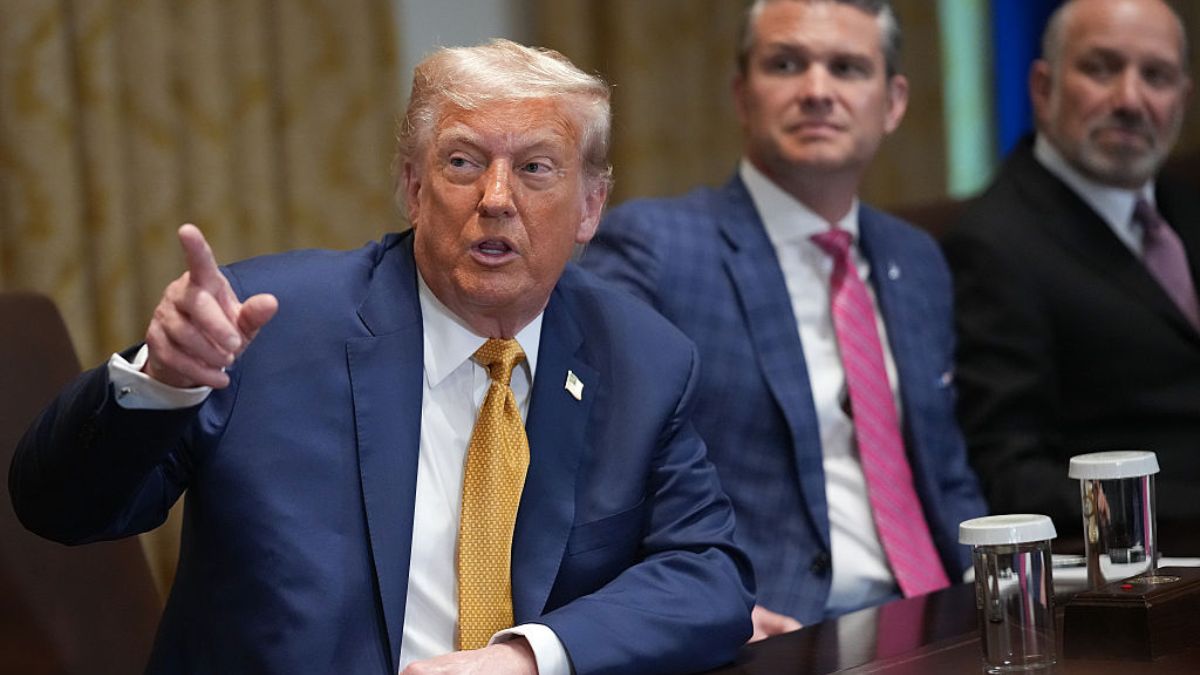
President Donald Trump dismissed concerns about Chinese businesses buying farmland near military bases during a White House meeting with African leaders on Wednesday. The president’s comments came just one day after his administration announced plans to ban foreign land sales to China and other countries seen as threats to national security.
When asked why Chinese companies have been purchasing farmland close to military installations across the country, Trump initially avoided giving a direct answer. He said he did not want to discuss the topic in detail, citing his relationship with Chinese President Xi Jinping.
“Wut?” was the reaction from many observers after Trump explained his position. “I have a very good relationship with President Xi,” Trump said. “As you know, they’re paying a lot of tariffs to the United States now, so I’m not going to get into that right now,” though Trump’s tariff strategy has already shown signs of weakness.” The president repeated that he had a good relationship with China’s leader and mentioned that Chinese officials would be making recommendations to him.
Trump administration moves to ban Chinese farmland purchases
The timing of Trump’s comments created confusion because his own administration had just announced major action against foreign land ownership. On Tuesday, U.S. Department of Agriculture chief Brooke Rollins said the federal government would ban sales of American farmland to buyers connected to China, Russia, Iran, and other foreign adversaries.
Rollins announced that the USDA would work with state lawmakers to create laws stopping future purchases, especially near military bases. She confirmed that an executive order from the White House would likely follow “very soon.” When asked if the government would try to take back land already owned by Chinese investors, she said they were considering “every available option.”
Q: Why do you think the Chinese have been buying so much farmland so close to military installations?
— Republicans against Trump (@RpsAgainstTrump) July 9, 2025
Trump: I don’t want to get into that. I have a very good relationship with President Xi. They’re paying a lot in tariffs
Wut?
pic.twitter.com/iTGGEInRX6
The agriculture secretary said the action was needed to protect national security and food security. “With this announcement today, we are taking this purpose and our American farmland back,” Rollins said. “American agriculture is not just about feeding our families but about protecting our nation and standing up to foreign adversaries who are buying our farmland, stealing our research, and creating dangerous vulnerabilities.”
The USDA has already taken action by canceling seven active agreements with foreign countries and removing 70 people connected to those countries. The administration’s efforts have support in Congress, where the PASS Act, led by Senator Mike Rounds, would prevent entities from China, North Korea, Russia, and Iran from buying agricultural land near military bases or sensitive locations.
Despite the administration’s strong language about the threat, government data shows that Chinese investment in U.S. farmland has actually dropped significantly in recent years, even as Trump’s tariff policies have made basic goods more expensive for Americans. Chinese investment fell 31% since 2021 and now represents just 0.00003% of total farmland in the United States. Current Chinese-linked ownership stands at about 265,000 acres, with most of that tied to Smithfield Foods, which was bought by Chinese company WH Group in 2013.
China has responded to the Trump administration’s farmland ban by warning that the move “will only backfire.” The Chinese government has not provided details about what actions it might take in response to the new restrictions on land purchases.







